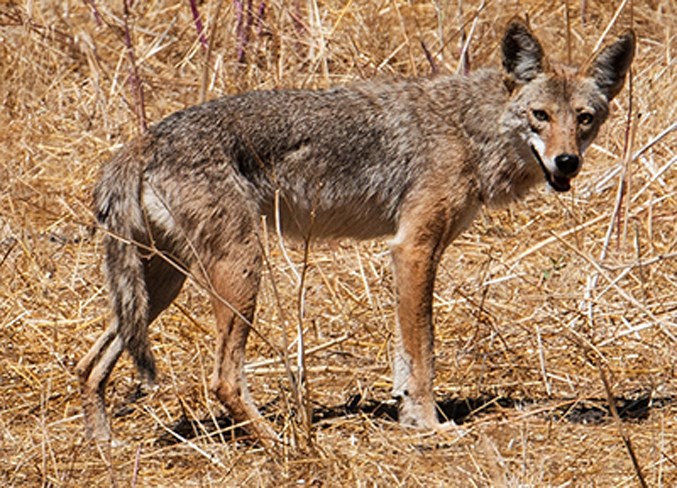The MD of Bonnyville's coyote and wolf reduction program is seeing results.
This season saw 1,103 coyotes and 25 wolves brought into the MD. The number of coyotes saw a significant increase from 803 last season, while there was a slight drop in wolves.
Matt Janz, director of ag and waste services, explained during the MD council meeting on Wednesday, April 24, that the jump was due to a longer timeframe. For 2017/18, the program only ran from Jan. 1 to March 31.
"Our council at the time felt that they didn't really know the coyote numbers, and just to be on the safe side, they didn't want to have the numbers out of whack," he explained.
After conducting surveys, the municipality felt there were enough coyotes to have the program run from Oct. 1, 2018 to March 31 this year.
"Obviously, there were a lot of coyotes because we had over 1,100 (brought in)," said Janz.
According to Janz, the MD has participated in the program since 2005 and joined because of concerns that arose from farmers in the municipality.
"The issues that some of our residents have with them are predation, which is the killing of livestock," he explained, adding coyotes were targeting sheep, goats, chicken, and cattle.
Coyotes are considered pests under the Alberta Agriculture and Forestry Pest Act, which means municipalities can address them through toxins or programs similar to the MD's.
"We felt that we preferred not to use poisons out there. We felt that this way is more targeting the right and problem animals," he explained.
Those who participate have to be licensed to trap and show proof of permission to hunt on private land.
"It was available for anybody who lives within the MD of Bonnyville. You can be an MD resident, a Town of Bonnyville resident, or City of Cold Lake resident," Janz said, adding any legal methods, including trapping or shooting, were allowed.
During the months of the program, hunters receive $15 per coyote and $75 per wolf brought into the municipality.
Janz explained, "The wolves are a lot harder to control and manage, so we put a little larger incentive on them."
After the MD counts each animal brought in, the hunter can keep them to use as they see fit.
"We try to make sure that all the hides are utilized, used as fur, that they're not going to waste, that the animals aren't killed for no reason, and they can be used for other purposes," detailed Janz.
This upcoming fall, the municipality will conduct a survey and review the numbers to see if they will run the program again.
"At the end of the day, we're not out there just to kill all the animals. It's a tool for management. When the numbers are high, we want to make sure that the tools are there for that purpose and if the numbers drop below a threshold, then we suspend the program."



